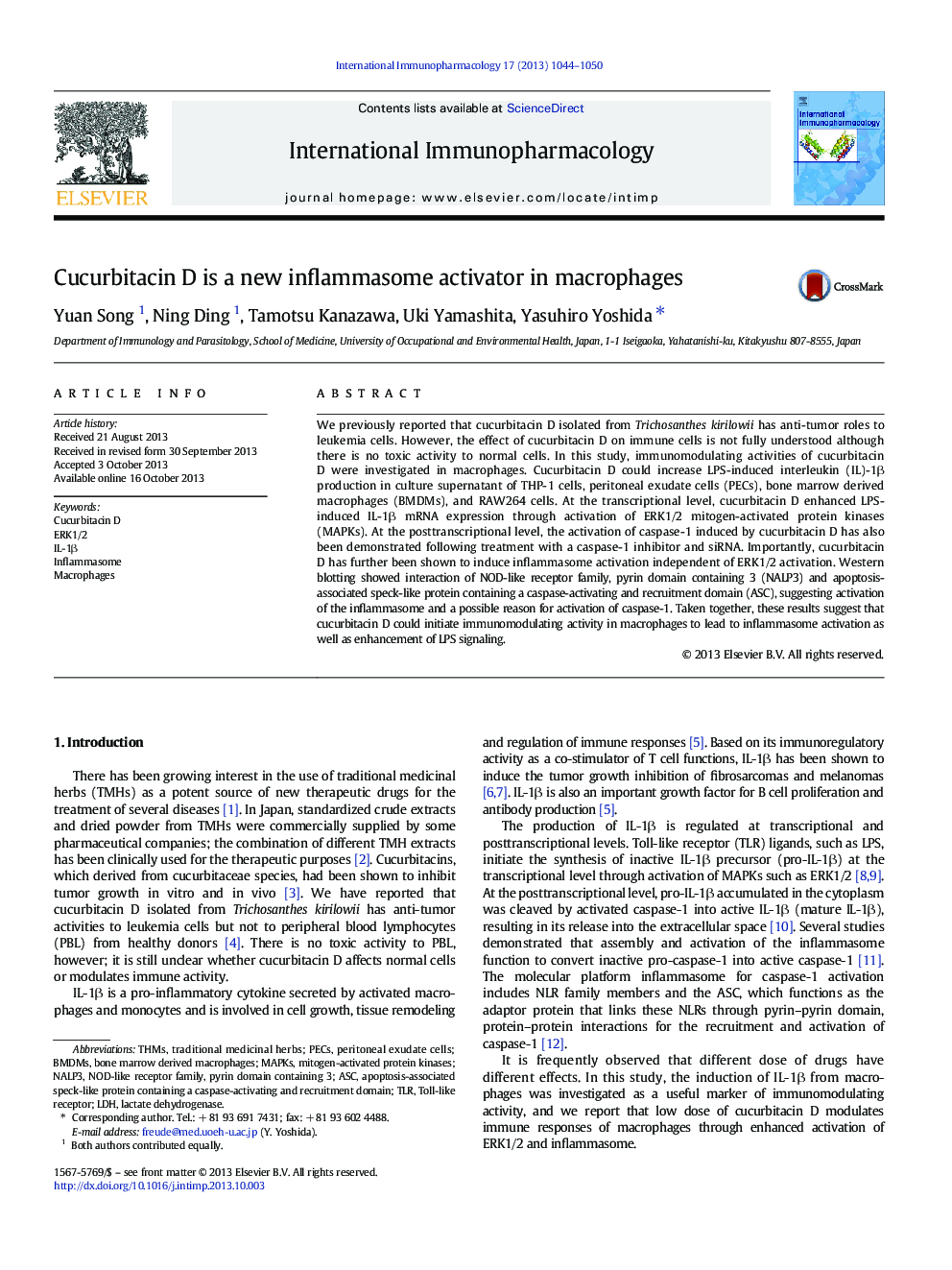| Article ID | Journal | Published Year | Pages | File Type |
|---|---|---|---|---|
| 2540866 | International Immunopharmacology | 2013 | 7 Pages |
•Cucurbitacin D increases LPS-induced IL-1β production in several macrophages.•Activation of inflammasome was induced by cucurbitacin D.•Phosphorylation of ERK was enhanced by cucurbitacin D.
We previously reported that cucurbitacin D isolated from Trichosanthes kirilowii has anti-tumor roles to leukemia cells. However, the effect of cucurbitacin D on immune cells is not fully understood although there is no toxic activity to normal cells. In this study, immunomodulating activities of cucurbitacin D were investigated in macrophages. Cucurbitacin D could increase LPS-induced interleukin (IL)-1β production in culture supernatant of THP-1 cells, peritoneal exudate cells (PECs), bone marrow derived macrophages (BMDMs), and RAW264 cells. At the transcriptional level, cucurbitacin D enhanced LPS-induced IL-1β mRNA expression through activation of ERK1/2 mitogen-activated protein kinases (MAPKs). At the posttranscriptional level, the activation of caspase-1 induced by cucurbitacin D has also been demonstrated following treatment with a caspase-1 inhibitor and siRNA. Importantly, cucurbitacin D has further been shown to induce inflammasome activation independent of ERK1/2 activation. Western blotting showed interaction of NOD-like receptor family, pyrin domain containing 3 (NALP3) and apoptosis-associated speck-like protein containing a caspase-activating and recruitment domain (ASC), suggesting activation of the inflammasome and a possible reason for activation of caspase-1. Taken together, these results suggest that cucurbitacin D could initiate immunomodulating activity in macrophages to lead to inflammasome activation as well as enhancement of LPS signaling.
Graphical abstractFigure optionsDownload full-size imageDownload as PowerPoint slide
